10 Behavioral Interview Questions EVERY interviewer asks
Interviews can get a bit nerve-wracking, right? Well, sometimes, they throw these things called behavioral interview questions at you. It’s like a sneak peek into your past to figure out how you handled stuff and what you might do in similar situations in the future. Your past experiences basically spill the beans on how awesome you are.
Now, the cool part is that these behavioral questions aren’t all about techy stuff. Nope, they’re about you—your life, your adventures, your wins. And guess what? You can totally prep for them. Seriously, you already have the answers; we just need to brush them up a bit.
What are the behavioral Interview Questions?
Behavioural questions are a type of interview questions that help the interviewer assess a candidates ability to react to situations in the past. Instead of framing hypothetical questions, interviewers choose to test a candidates competence based on real life experience and how the candidate reacted to these experiences. They are also a great tool to test individuals behaviour and skills.
Types of Behavioural Interview Questions
Here are some examples of the different types of Behavioural Interview Questions that can be asked:
- Time Management Questions
Describe a long-term project you managed. How did you make sure everything was running smoothly?
What they want to know:
The interviewer wants to assess your ability to handle long-term projects and ensure their smooth execution. They are looking for insights into your time management skills, organizational abilities, and strategies for keeping projects on track.
Example Answer:
In my previous role, I managed a year-long project to implement a new customer relationship management (CRM) system. To ensure everything ran smoothly, I started by breaking down the project into manageable phases with specific milestones. I created a detailed timeline, identified potential bottlenecks, and allocated resources effectively. Regular check-ins with team members and stakeholders helped us stay on course. Additionally, I used project management tools like Asana to track progress, deadlines, and individual responsibilities. This proactive approach ensured that we not only met our deadlines but also maintained a high level of quality throughout the project.
-
Teamwork behavioral interview questions
What do you do when your team member refuses to, or just can’t complete their part of the work? Give me an example.
What they want to know:
In my previous role, I managed a year-long project to implement a new customer relationship management (CRM) system. To ensure everything ran smoothly, I started by breaking down the project into manageable phases with specific milestones. I created a detailed timeline, identified potential bottlenecks, and allocated resources effectively. Regular check-ins with team members and stakeholders helped us stay on course. Additionally, I used project management tools like Asana to track progress, deadlines, and individual responsibilities. This proactive approach ensured that we not only met our deadlines but also maintained a high level of quality throughout the project.
Example Answer:
In a recent project, I encountered a situation where a team member was struggling to complete their assigned tasks due to unforeseen personal challenges. Recognizing the importance of teamwork, I took the initiative to have an open and empathetic conversation with the team member to understand their situation better. Together, we explored potential solutions, such as redistributing workload or adjusting deadlines. Simultaneously, I kept the team informed about the challenges we were facing and the collaborative efforts underway. By fostering open communication and finding a solution that accommodated the team member’s situation, we completed the project without compromising on the quality of our work.
- Working with clients
How do you handle irate customers? Give me an example.
What they want to know:
The interviewer is assessing your ability to handle difficult situations with clients, particularly those involving dissatisfaction or frustration. They are looking for evidence of your customer service skills, problem-solving under pressure, and maintaining a positive client relationship.
Sample Answer:
In a previous role, I encountered an irate customer who was dissatisfied with our product due to a misunderstanding of its features. Understanding the importance of customer satisfaction, I remained calm and empathetic. I actively listened to the customer’s concerns, acknowledged their frustration, and apologized for any confusion. To address the issue, I provided a detailed explanation of the product features and offered personalized assistance in utilizing its functionalities. By the end of the conversation, the customer’s frustration had transformed into appreciation, and they became a loyal advocate for our product.
-
Adaptability
Tell me about your first job in the industry. What did you do to learn the ropes?
What they want to know:
The interviewer is interested in your ability to adapt to new environments, especially in the context of your first job in the industry. They are looking for insights into your learning agility, resourcefulness, and proactive approach to acquiring new skills.
Sample Answer:
In my initial role in the industry, I recognized the importance of quickly learning and adapting to the dynamic nature of the field. To learn the ropes, I actively sought mentorship from experienced colleagues, attended industry seminars, and enrolled in relevant online courses. I immersed myself in the company culture, asking questions, and taking on diverse tasks to broaden my understanding. This approach helped me understand the industry but also allowed me to contribute meaningfully to projects early on.
-
Leadership
Tell me about a time when you successfully delegated tasks to your team.
What they want to know:
The interviewer is exploring your leadership skills, specifically in the context of successful delegation. They are looking for evidence of your ability to assign tasks effectively. How you empower your team and achieve positive outcomes through collaboration.
Sample Answer:
In a previous leadership role, I led a team through a challenging project by strategically delegating tasks based on individual strengths. I started by understanding each team member’s expertise and assigning responsibilities that aligned with their skills. Regular check-ins ensured everyone was on track. I created an environment where team members felt comfortable seeking support from one another. By fostering a collaborative and supportive atmosphere, we met project deadlines, and set a new benchmark for creativity. This experience highlighted the power of effective delegation in achieving successful outcomes.



